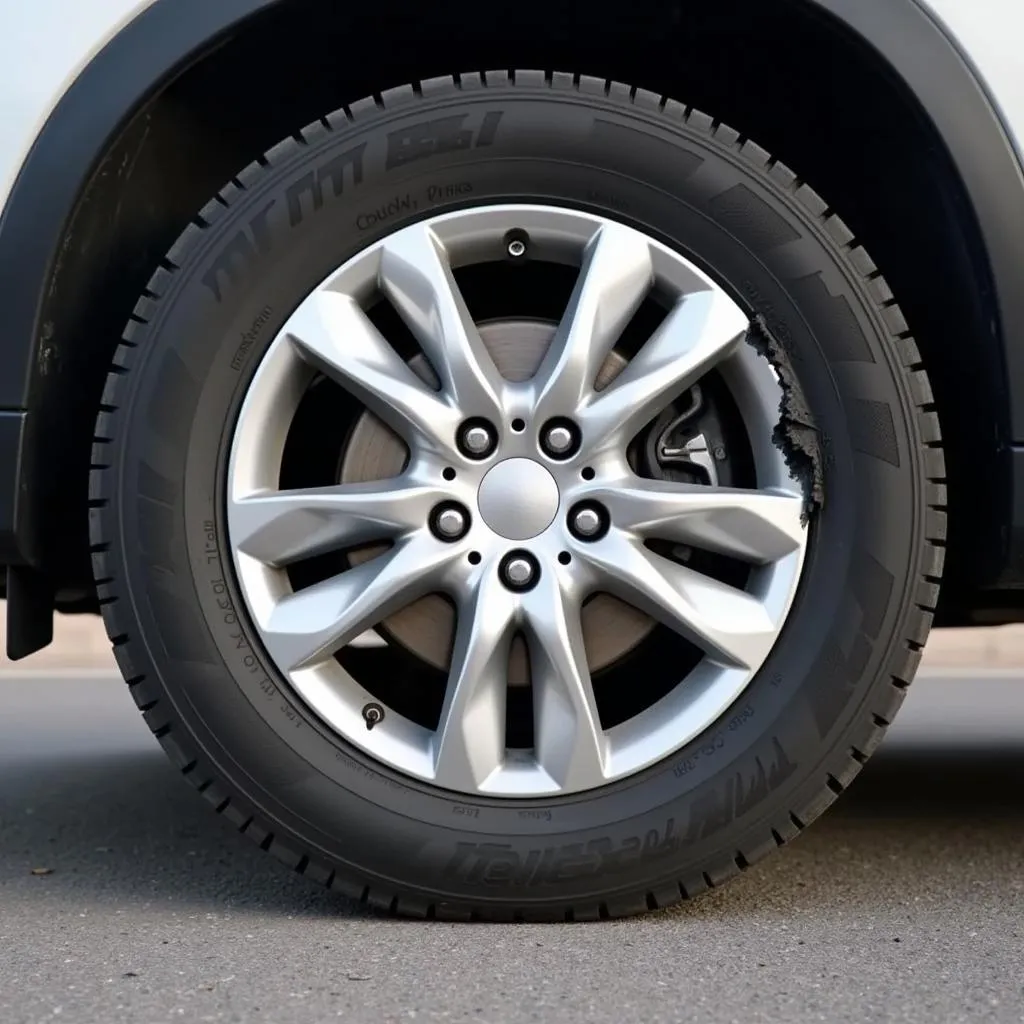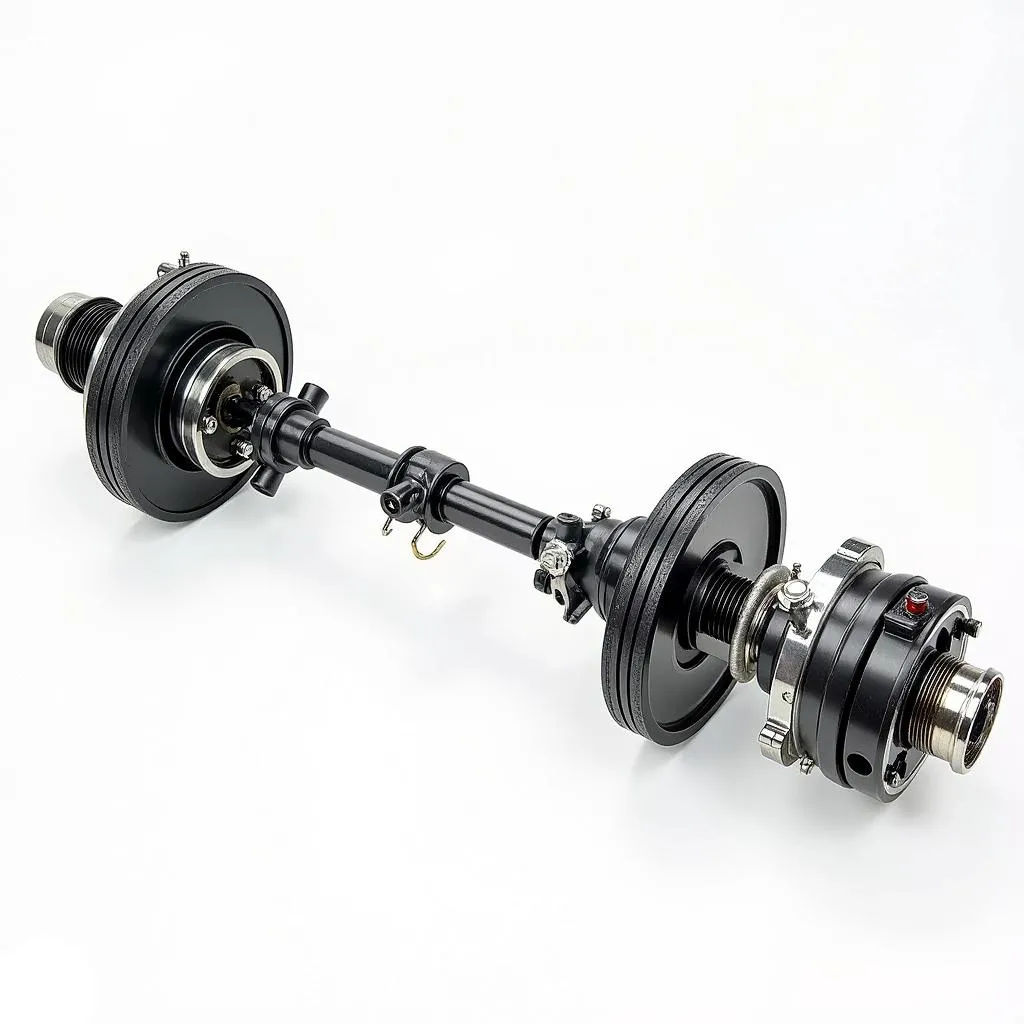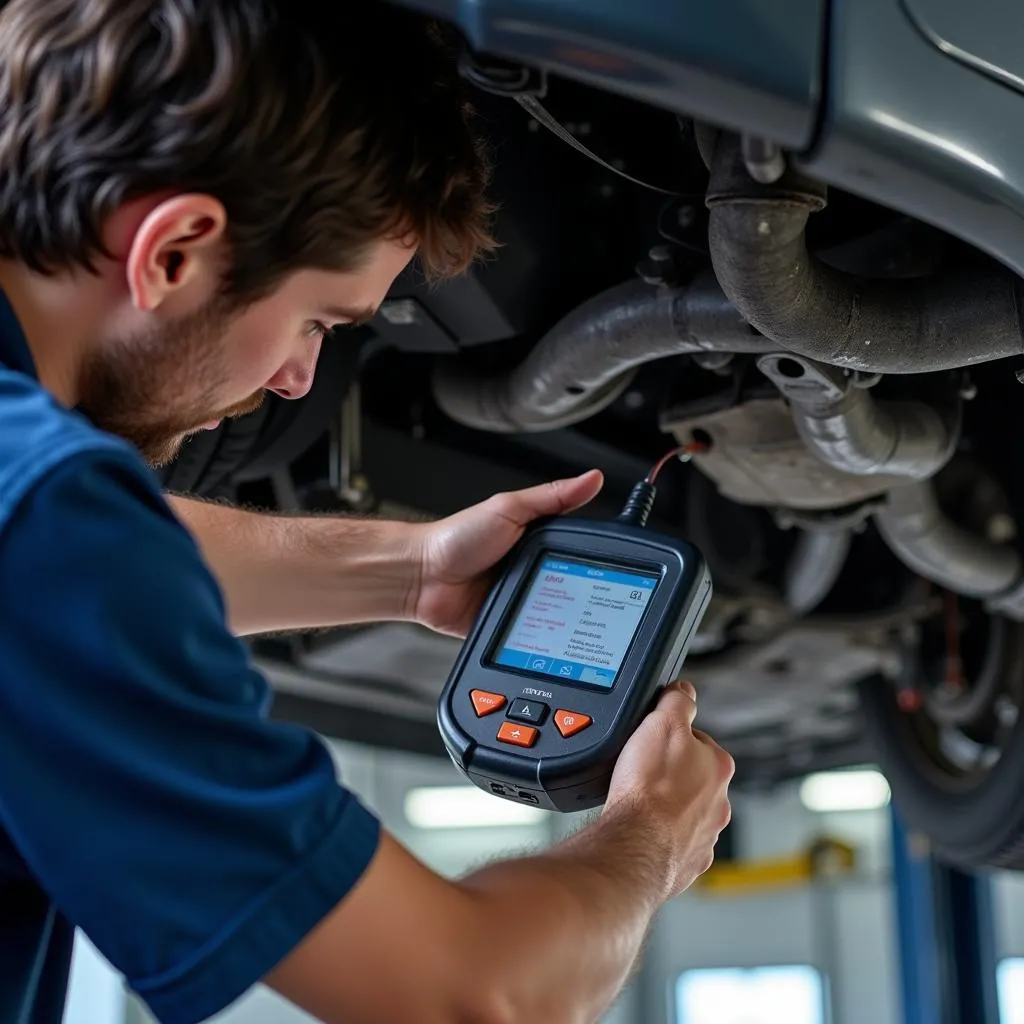Experiencing vibrations or shaking in your car when you hit speeds above 60 mph can be a nerve-wracking experience. Not only is it uncomfortable, but it can also be a sign of a serious underlying issue that needs immediate attention.
This article delves into the common causes of car shaking at high speeds and provides potential solutions to help you get a smoother, safer ride.
Common Culprits Behind the Shakes
Several factors can contribute to your car shaking above 60 mph. Here’s a breakdown of the most common culprits:
1. Wheel and Tire Issues
Wheels and tires are often the primary suspects when your car shakes at high speeds.
-
Unbalanced tires: Over time, tires can wear unevenly, causing an imbalance that leads to vibrations. These vibrations become more noticeable at higher speeds.
-
Misaligned wheels: If your wheels are not aligned properly, they can cause your car to pull to one side and vibrate, especially at higher speeds.
-
Damaged tires: Bulges, bubbles, or flat spots on your tires – often caused by hitting potholes or curbs – can disrupt the tire’s balance and result in shaking.
-
Bent rims: Just like damaged tires, bent rims can also throw off wheel balance and cause vibrations.
 Car with a bent rim
Car with a bent rim
2. Suspension Problems
Your car’s suspension system is designed to absorb bumps and keep your tires in contact with the road. When suspension components wear out or become damaged, it can lead to vibrations.
-
Worn-out shocks or struts: These components help dampen the up-and-down movement of your car’s suspension. When they wear out, they can’t absorb shocks effectively, leading to a bouncy ride and vibrations.
-
Damaged control arms or ball joints: These parts connect your wheels to the suspension system. If they are worn or damaged, your wheels can move independently, resulting in shaking and instability, particularly at higher speeds.
3. Drivetrain Malfunctions
The drivetrain is responsible for transferring power from your engine to your wheels. Problems within the drivetrain can also cause vibrations at high speeds.
-
Worn-out CV joints: Constant velocity (CV) joints allow your axles to move up and down while still transferring power to the wheels. Worn-out CV joints, often indicated by a clicking sound, can cause vibrations, especially during acceleration.
-
Damaged driveshaft: The driveshaft spins rapidly to transfer power from the transmission to the rear differential (in rear-wheel and all-wheel drive vehicles). A bent or damaged driveshaft can cause significant vibrations, especially at higher speeds.
 Car driveshaft
Car driveshaft
4. Brake Issues
While less common, brake problems can also cause shaking, especially if you feel the vibrations through the steering wheel.
- Warped brake rotors: Over time, brake rotors can become warped due to excessive heat or wear. This warping can cause a pulsing sensation in the brake pedal and vibrations when braking at high speeds.
Diagnosing the Issue
Identifying the exact cause of car shaking above 60 mph requires a systematic approach. Here’s what you can do:
-
Pay attention to the symptoms: Does the shaking occur only at high speeds, during acceleration, or when braking? Identifying when the shaking occurs can help narrow down the potential causes.
-
Check your tires: Visually inspect your tires for signs of uneven wear, bulges, bubbles, or any visible damage.
-
Listen for unusual noises: Clunking, clicking, or grinding sounds can indicate problems with the suspension, CV joints, or other components.
-
Take your car to a mechanic: If you suspect any of the issues mentioned above, it’s crucial to take your car to a qualified mechanic. They have the expertise and tools to accurately diagnose the problem and recommend the necessary repairs.
 Mechanic inspecting a car
Mechanic inspecting a car
Preventing Future Shakes
Regular car maintenance is crucial for preventing many of the issues that cause shaking at high speeds. Here are some preventive measures:
-
Regular tire rotations and balancing: This helps ensure even tire wear and prevents imbalances that can lead to vibrations.
-
Wheel alignment checks: Getting your wheel alignment checked regularly can prevent uneven tire wear and vibrations.
-
Timely suspension maintenance: Regularly inspect your shocks, struts, and other suspension components for signs of wear and tear.
-
Promptly address any unusual noises or vibrations: Don’t ignore warning signs. Addressing minor issues early can prevent them from escalating into major problems.
Conclusion
A car shaking above 60 mph can be a sign of various issues, from minor tire imbalances to serious drivetrain problems. Ignoring these vibrations can lead to further damage and compromise your safety on the road. By understanding the common causes and taking preventive measures, you can ensure a smoother, safer, and more enjoyable driving experience.
FAQs
1. Can driving on a flat tire cause my car to shake at high speeds?
Yes, driving even a short distance on a flat tire can cause significant damage to the tire and potentially the wheel, leading to shaking and vibrations.
2. How often should I get my tires rotated and balanced?
It’s generally recommended to have your tires rotated and balanced every 5,000-7,000 miles, or as recommended by your car’s manufacturer.
3. Is it safe to drive my car if it’s shaking?
Driving a car that’s shaking can be dangerous, especially at high speeds. It’s crucial to have the problem diagnosed and repaired by a qualified mechanic as soon as possible.
4. Can worn-out spark plugs cause my car to shake?
While worn-out spark plugs can cause engine misfires and vibrations, these vibrations are typically more noticeable at lower speeds or during acceleration, rather than at a consistent speed of 60 mph or above.
5. How much does it cost to fix car shaking?
The cost of repair depends on the underlying cause. Simple tire balancing can be relatively inexpensive, while repairs to the suspension or drivetrain can be more costly.
For more information on car shaking and other related issues, you can read:
Need assistance with diagnosing or fixing car shaking issues? Contact us via WhatsApp: +1(641)206-8880, Email: [email protected]. Or visit us at 276 Reock St, City of Orange, NJ 07050, United States. Our expert team is available 24/7 to assist you.